Gabriel Pescia
Could ChatGPT get an Engineering Degree? Evaluating Higher Education Vulnerability to AI Assistants
Aug 07, 2024
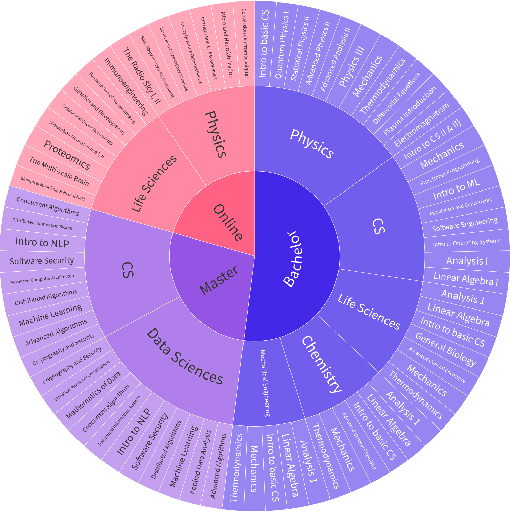
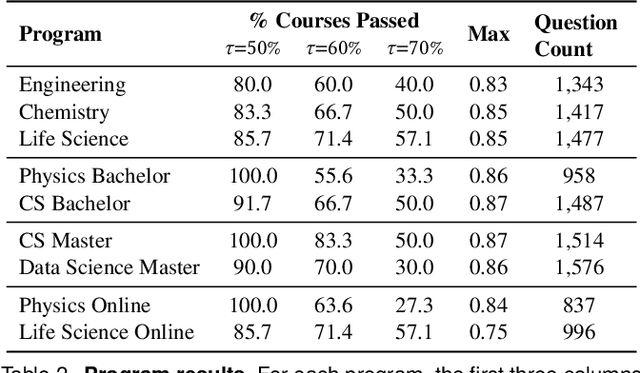

Abstract:AI assistants are being increasingly used by students enrolled in higher education institutions. While these tools provide opportunities for improved teaching and education, they also pose significant challenges for assessment and learning outcomes. We conceptualize these challenges through the lens of vulnerability, the potential for university assessments and learning outcomes to be impacted by student use of generative AI. We investigate the potential scale of this vulnerability by measuring the degree to which AI assistants can complete assessment questions in standard university-level STEM courses. Specifically, we compile a novel dataset of textual assessment questions from 50 courses at EPFL and evaluate whether two AI assistants, GPT-3.5 and GPT-4 can adequately answer these questions. We use eight prompting strategies to produce responses and find that GPT-4 answers an average of 65.8% of questions correctly, and can even produce the correct answer across at least one prompting strategy for 85.1% of questions. When grouping courses in our dataset by degree program, these systems already pass non-project assessments of large numbers of core courses in various degree programs, posing risks to higher education accreditation that will be amplified as these models improve. Our results call for revising program-level assessment design in higher education in light of advances in generative AI.
Ab-initio variational wave functions for the time-dependent many-electron Schrödinger equation
Mar 12, 2024Abstract:Describing the dynamics of many-electron quantum systems is crucial for applications such as predicting electronic structures in quantum chemistry, the properties of condensed matter systems, and the behaviors of complex materials. However, the real-time evolution of non-equilibrium quantum electronic systems poses a significant challenge for theoretical and computational approaches, due to the system's exploration of a vast configuration space. This work introduces a variational approach for fermionic time-dependent wave functions, surpassing mean-field approximations by capturing many-body correlations. The proposed methodology involves parameterizing the time-evolving quantum state, enabling the approximation of the state's evolution. To account for electron correlations, we employ time-dependent Jastrow factors and backflow transformations. We also show that we can incorporate neural networks to parameterize these functions. The time-dependent variational Monte Carlo technique is employed to efficiently compute the optimal time-dependent parameters. The approach is demonstrated in three distinct systems: the solvable harmonic interaction model, the dynamics of a diatomic molecule in intense laser fields, and a quenched quantum dot. In all cases, we show clear signatures of many-body correlations in the dynamics not captured by mean-field methods. The results showcase the ability of our variational approach to accurately capture the time evolution of quantum states, providing insight into the quantum dynamics of interacting electronic systems, beyond the capabilities of mean-field.
NetKet 3: Machine Learning Toolbox for Many-Body Quantum Systems
Dec 20, 2021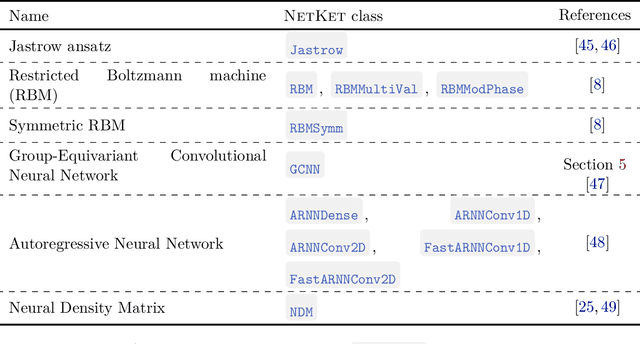
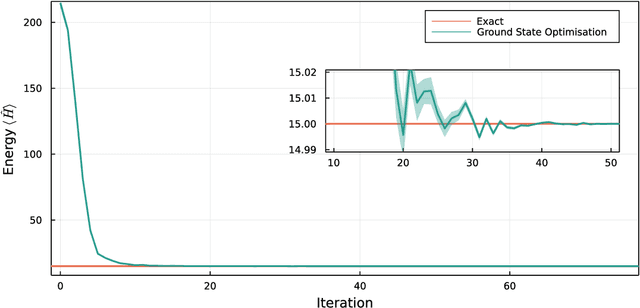
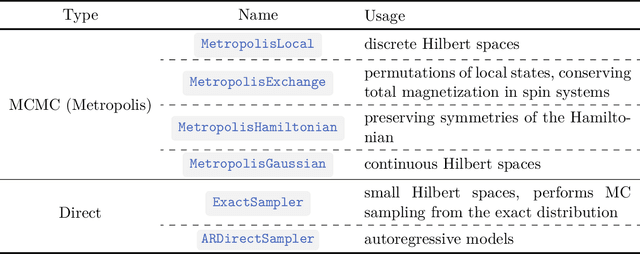
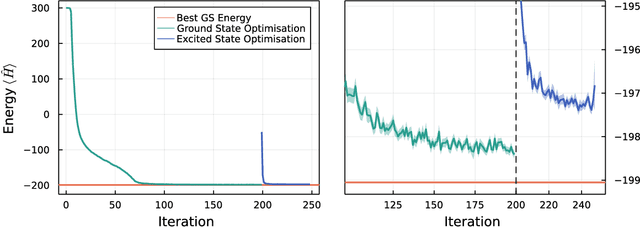
Abstract:We introduce version 3 of NetKet, the machine learning toolbox for many-body quantum physics. NetKet is built around neural-network quantum states and provides efficient algorithms for their evaluation and optimization. This new version is built on top of JAX, a differentiable programming and accelerated linear algebra framework for the Python programming language. The most significant new feature is the possibility to define arbitrary neural network ans\"atze in pure Python code using the concise notation of machine-learning frameworks, which allows for just-in-time compilation as well as the implicit generation of gradients thanks to automatic differentiation. NetKet 3 also comes with support for GPU and TPU accelerators, advanced support for discrete symmetry groups, chunking to scale up to thousands of degrees of freedom, drivers for quantum dynamics applications, and improved modularity, allowing users to use only parts of the toolbox as a foundation for their own code.
 Add to Chrome
Add to Chrome Add to Firefox
Add to Firefox Add to Edge
Add to Edge